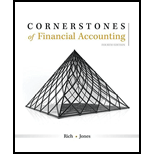
(a)
Introduction:
Compound interest considers the time value of money. Present value of Cashflow means the amount that should be invested to earn a specific amount on a specific date.
To calculate:
Present Value.
(b)
Introduction:
Compound interest considers the time value of money. Present value of Cashflow means the amount that should be invested to earn a specific amount on a specific date.
To calculate:
No. of periods.
(c)
Introduction:
Compound interest considers the time value of money. Present value of Cashflow means the amount that should be invested to earn a specific amount on a specific date.
To calculate:
Annual Cashflow.
(d)
Introduction:
Compound interest considers the time value of money. Present value of Cashflow means the amount that should be invested to earn a specific amount on a specific date.
To calculate:
Interest rate.
(e)
Introduction:
Compound interest considers the time value of money. Present value of Cashflow means the amount that should be invested to earn a specific amount on a specific date.
To calculate:
Interest rate.
Trending nowThis is a popular solution!

Chapter A3 Solutions
Cornerstones of Financial Accounting
- Accounting discuss, please expand upon and add some extra infoarrow_forwardPlease provide the solution to this financial accounting question using proper accounting principles.arrow_forwardI need help finding the accurate solution to this financial accounting problem with valid methods.arrow_forward
- Can you explain this financial accounting question using accurate calculation methods?arrow_forwardI am looking for help with this financial accounting question using proper accounting standards.arrow_forwardPlease provide the correct answer to this financial accounting problem using accurate calculations.arrow_forward
 EBK CONTEMPORARY FINANCIAL MANAGEMENTFinanceISBN:9781337514835Author:MOYERPublisher:CENGAGE LEARNING - CONSIGNMENT
EBK CONTEMPORARY FINANCIAL MANAGEMENTFinanceISBN:9781337514835Author:MOYERPublisher:CENGAGE LEARNING - CONSIGNMENT Cornerstones of Financial AccountingAccountingISBN:9781337690881Author:Jay Rich, Jeff JonesPublisher:Cengage Learning
Cornerstones of Financial AccountingAccountingISBN:9781337690881Author:Jay Rich, Jeff JonesPublisher:Cengage Learning- Principles of Accounting Volume 2AccountingISBN:9781947172609Author:OpenStaxPublisher:OpenStax CollegePrinciples of Accounting Volume 1AccountingISBN:9781947172685Author:OpenStaxPublisher:OpenStax College






